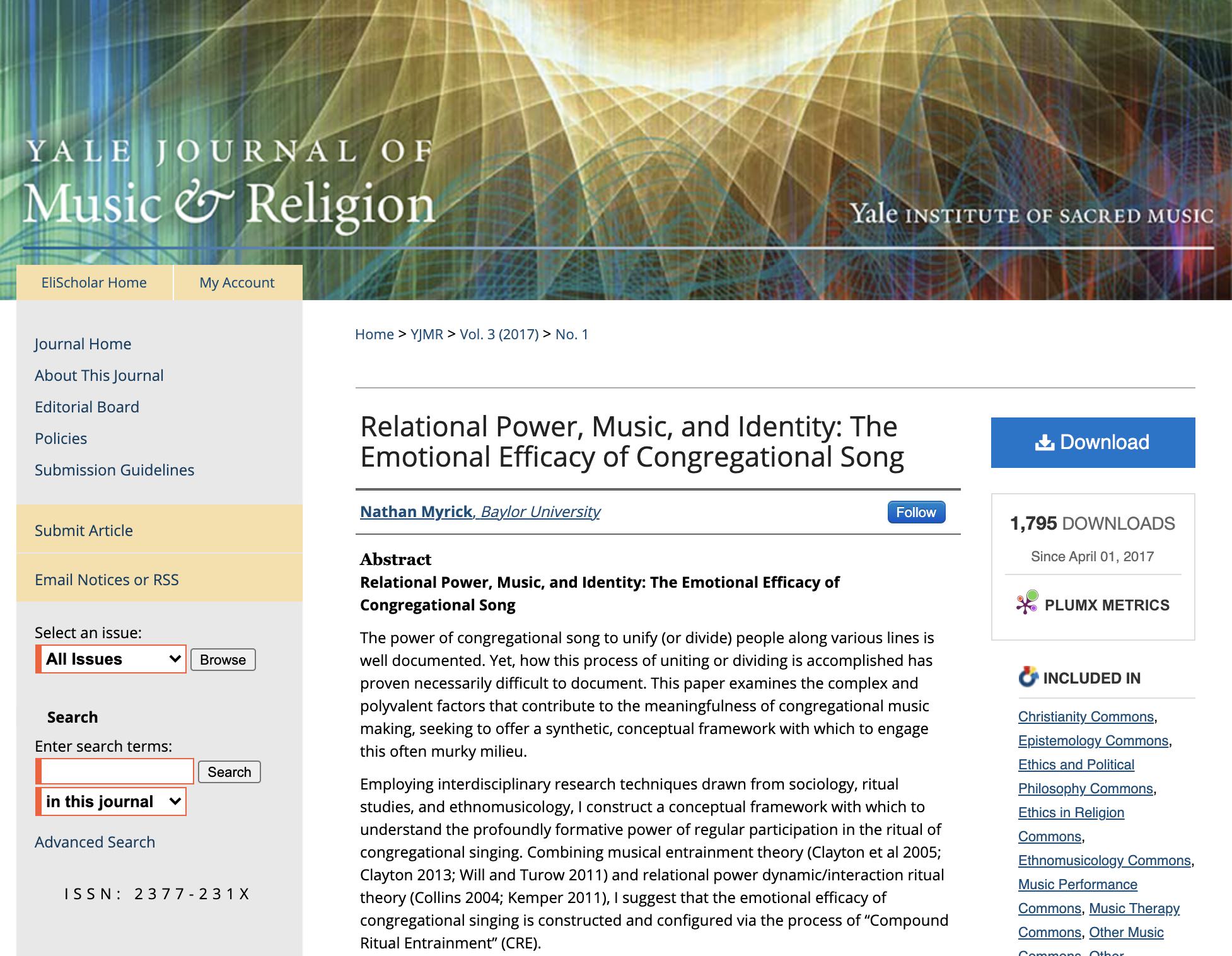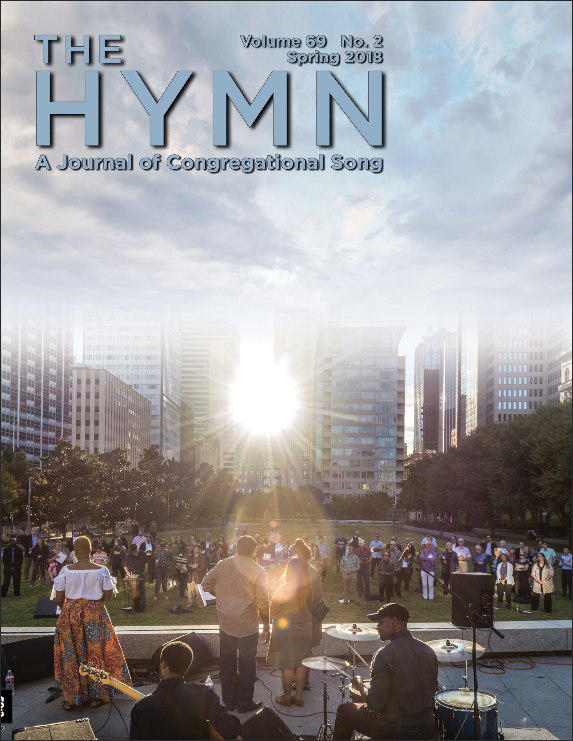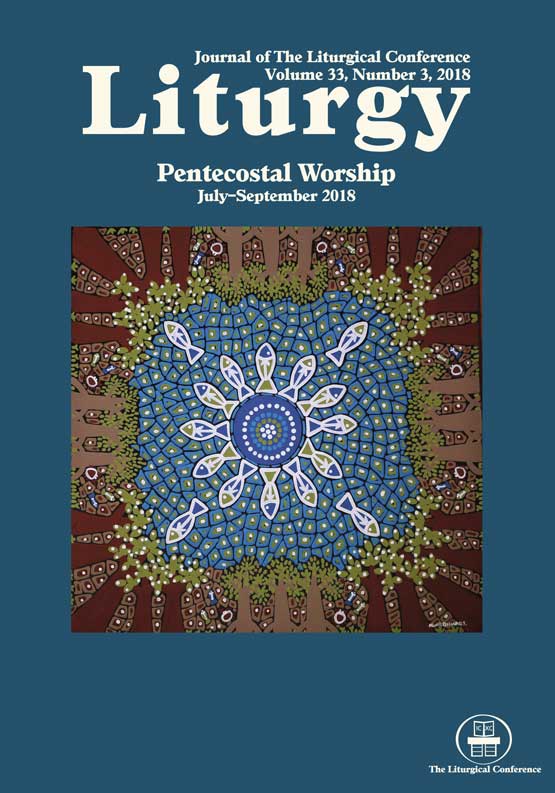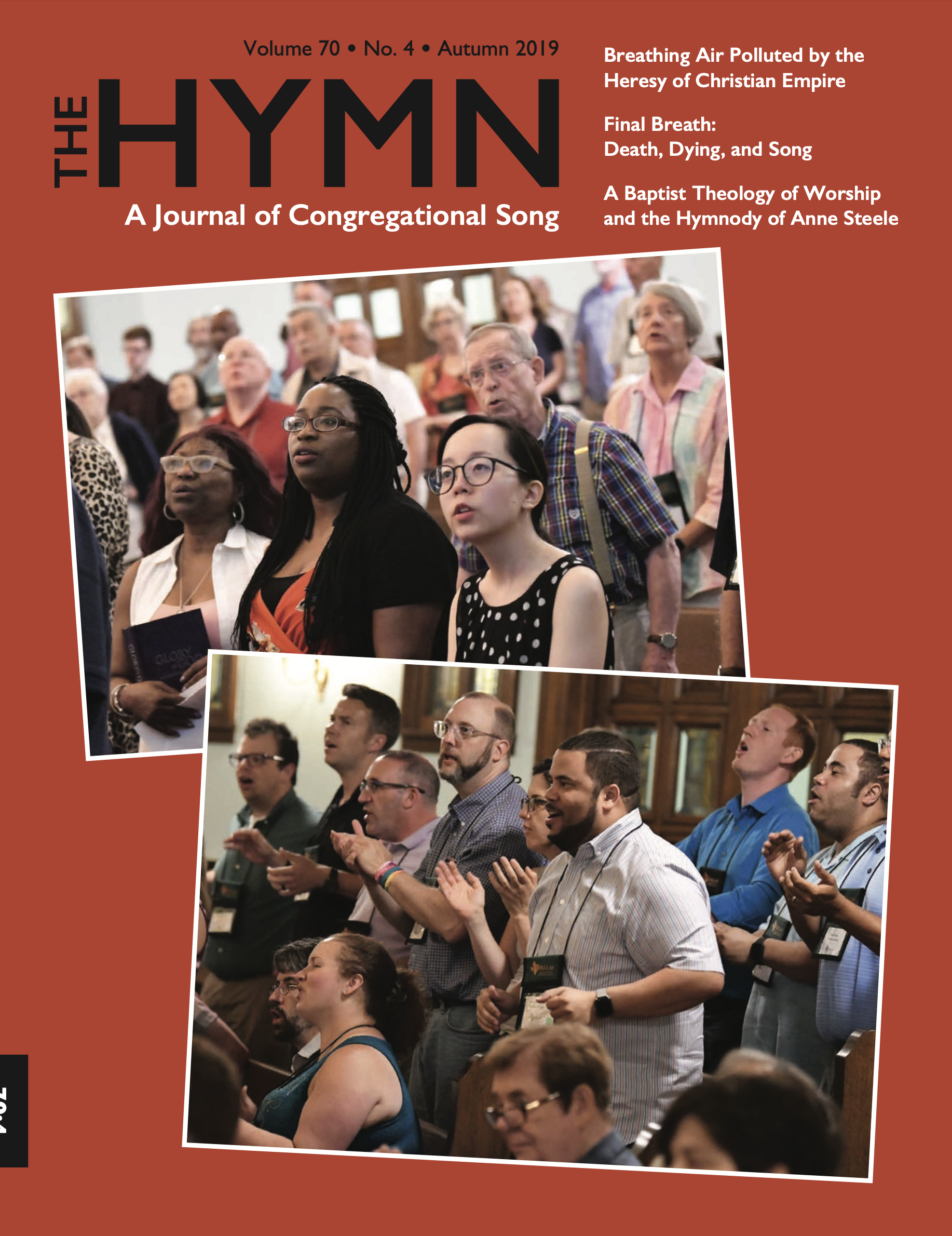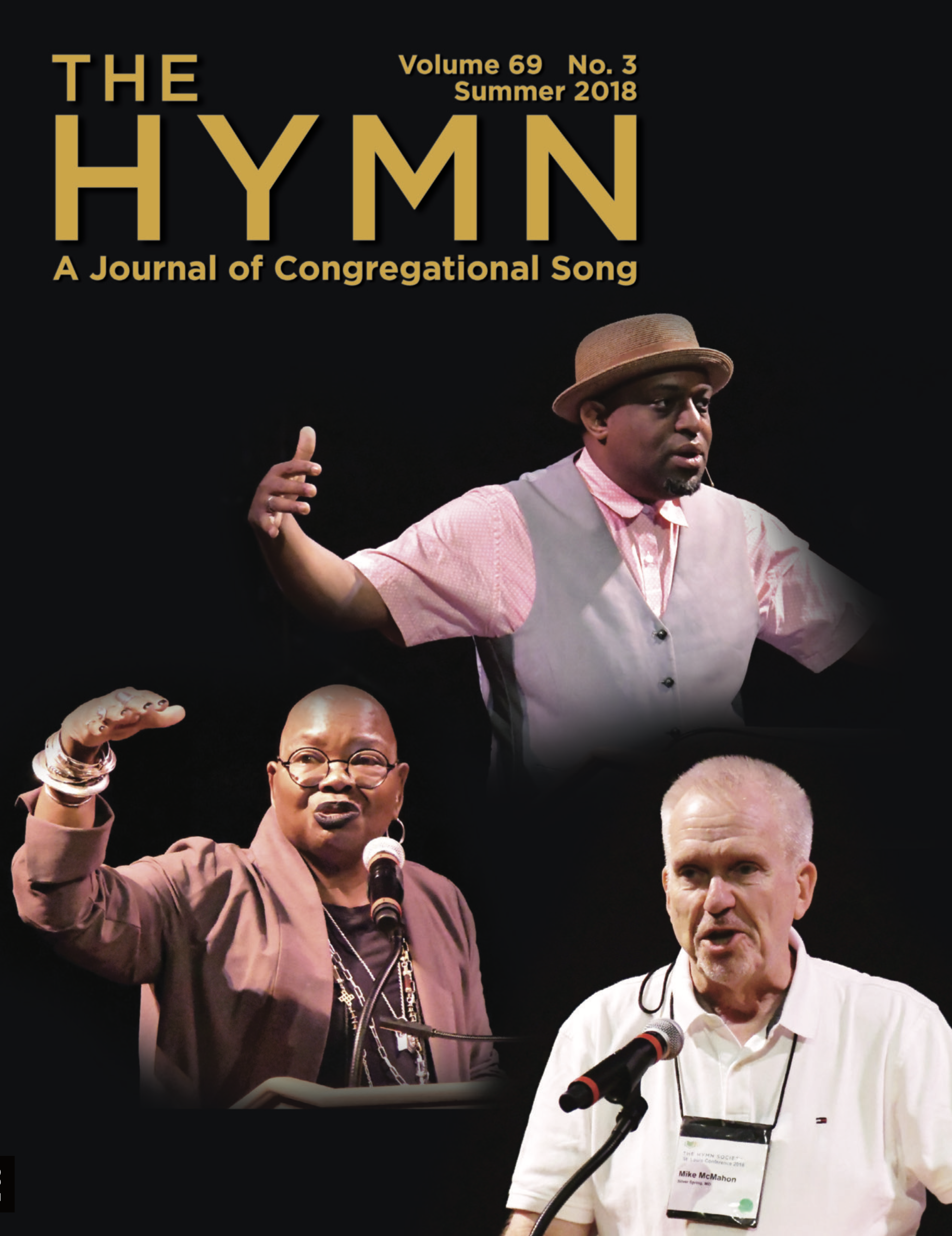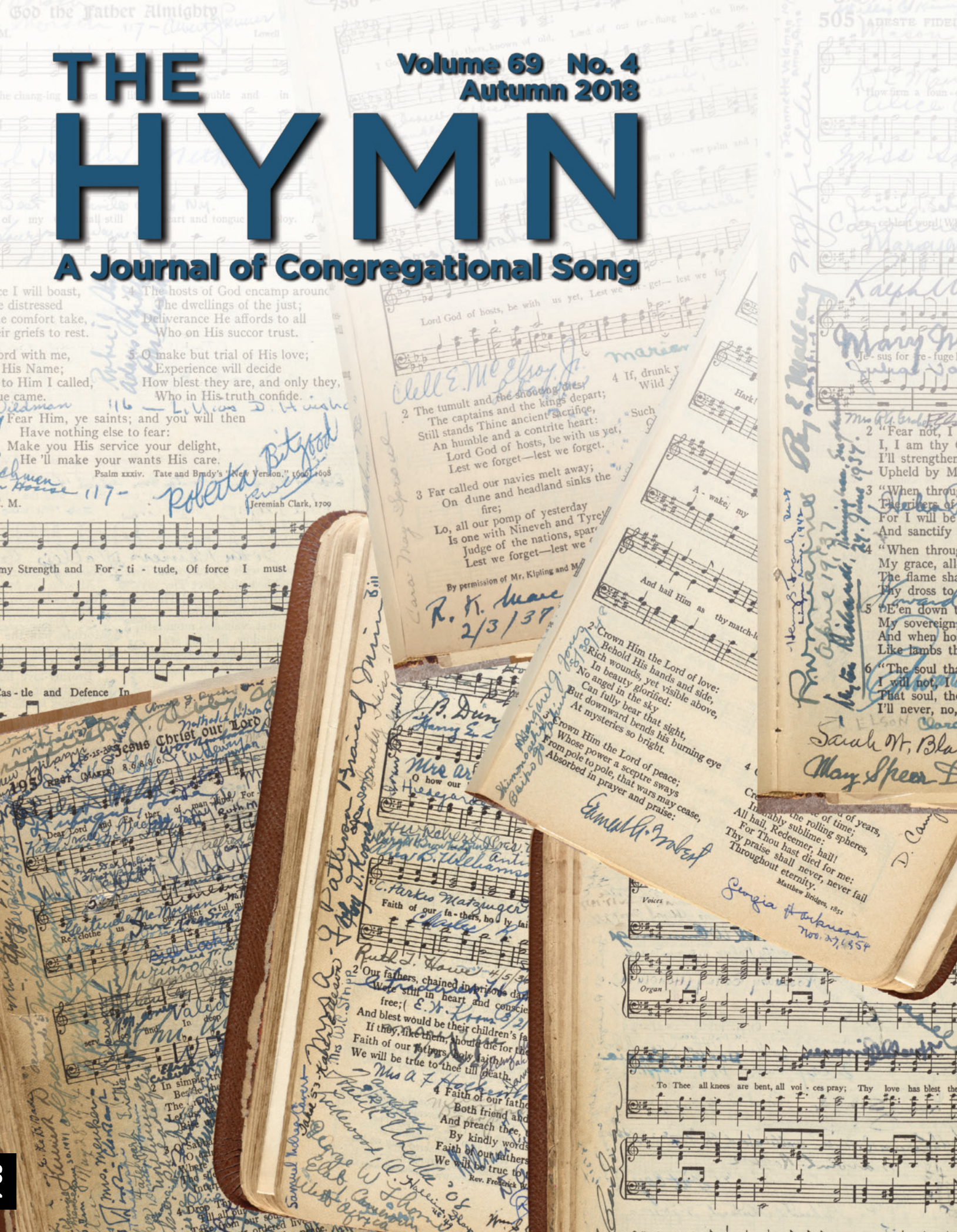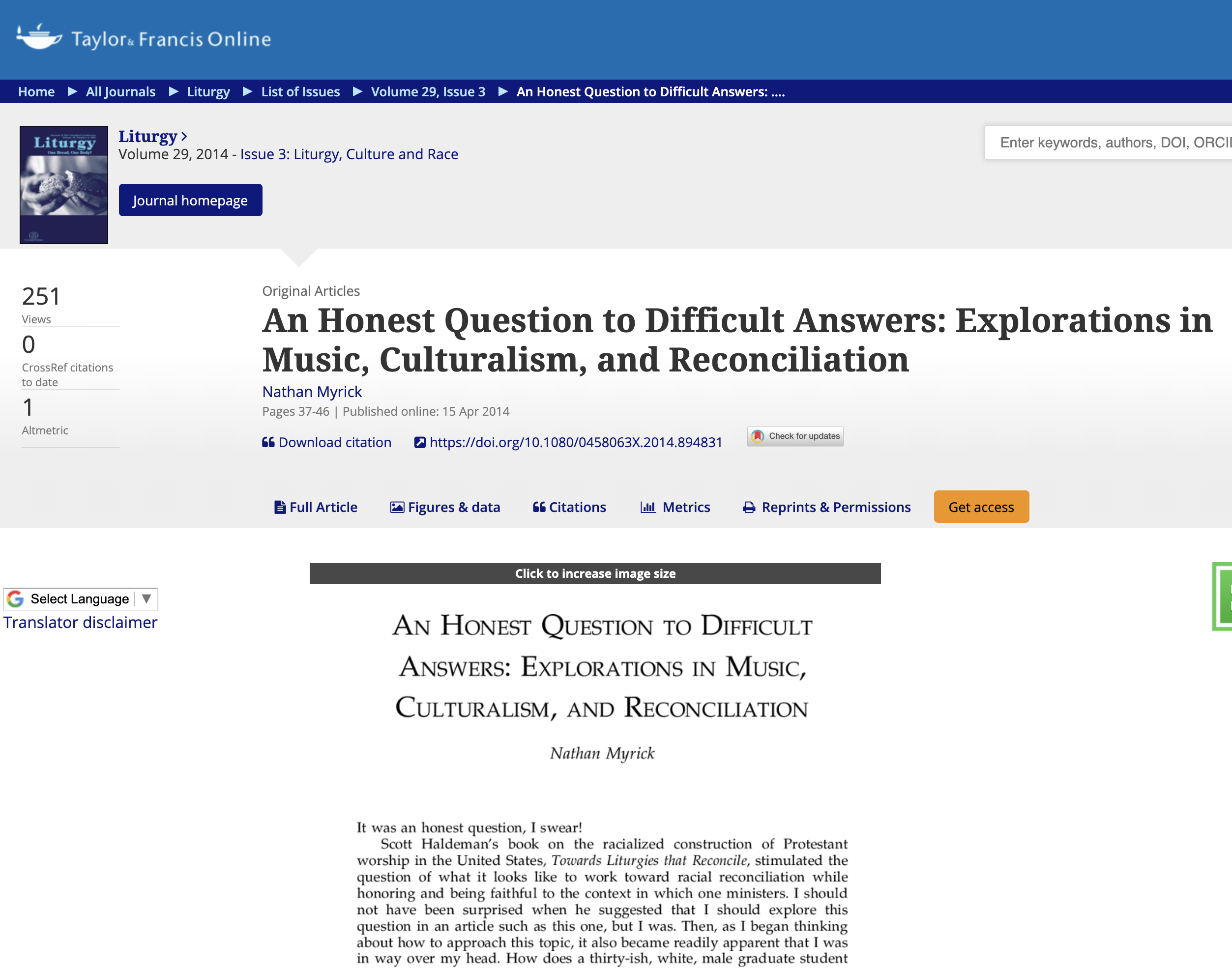PEER-REVIEWED JOURNALS
RELATIONAL POWER, MUSIC, AND IDENTITY: THE EMOTIONAL EFFICACY OF CONGREGATIONAL SONG
The power of congregational song to unify (or divide) people along various lines is well documented. Yet, how this process of uniting or dividing is accomplished has proven necessarily difficult to document. This paper examines the complex and polyvalent factors that contribute to the meaningfulness of congregational music making, seeking to offer a synthetic, conceptual framework with which to engage this often murky milieu.
DOUBLE AUTHENTICITY: CELEBRITY, CONSUMPTION, AND THE CHRISTIAN MUSIC INDUSTRY
In the years since the turn of the twenty-first century, a new form of music ministry has developed. Often characterized by rock and pop musics and especially by concert style production utilizing recent technological innovations, the new form has quickly grown to become one of the most popular and rapidly expanding models of evangelical protestant worship in the United States. Often historically associated with mega-churches such as Willow Creek and Gateway Church, and with charismatic and Pentecostal worship traditions, this sort of music ministry has been adopted by evangelical churches of all sizes and geographic regions, and has even had some influence in mainline congregations.
EMBODYING THE SPIRIT: TOWARD A THEOLOGY OF ENTRAINMENT
While I was in seminary, one of my professors remarked that he no longer participated in “worship music” because he experienced the same sensations and feelings at a Radiohead concert as he did while singing on Sunday morning. His comments gave me pause; why do we sing in church? What does music contribute to our experiences of worship, and how can we account for the similarity of sensations between congregational song and concert performance?
ETHNOGRAPHY AND WORSHIP: FROM SCHOLARSHIP TO PRACTICE
Recently, I was at a retreat where a music minister shared a story in which a pastor at the church he served remarked in a staff meeting, “I’m so glad we don’t have to deal with the gay question here.” The music minister, taken aback, asked for clarification, and the pastor reiterated his pleasure at not having to
address the question of human sexuality in his congregation.
Of course, the music minister knew of several members of the congregation who were indeed asking those “questions,” revealing the pastor’s lack of awareness.
THE CELEBRITY MODEL OF MUSIC MINISTRY: CHARACTERISTICS AND CONSIDERATIONS
It is no doubt apparent that Christian churches are evolving in unforeseen ways in North America, to say nothing of the entire world. One of the most striking evolutions is the effect of consumer culture on Christian worship practices. As I argued previously, this consumer impulse has resulted in a new model of music ministry in many Protestant congregations: the Celebrity Model. Characterized by carefully performed “Modern Worship” music as congregational song, and impelled by the value of “double authenticity” in the production of “sacredized” artifacts, the Celebrity Model is a unique, yet not unprecedented, liturgical form.
THE ART OF LISTENING IN MULTICULTURAL WORSHIP
I recently played guitar for a women’s preaching conference where the worship leader was criticized for performing a song that did not originate in her culture. A white woman, her decision to lead the song “Every Praise” by black gospel artist Hezekiah Walker was met with disdain and offense by some of the black women present at the conference. Among the criticisms were those of performance and representation; we didn’t play the song right, and the wrong person led it. As a result, the song seemed to demonstrate how, once again, well-meaning white people had stolen the cultural goods from a less powerful group and leveraged it to feel better about ourselves.
AN HONEST QUESTION TO DIFFICULT ANSWERS: EXPLORATIONS IN MUSIC, CULTURALISM, AND RECONCILIATION
The importance of worship music in conversations about congregational health and growth is contested. The perception persists that worship music style is a primary means of determining comfort or belonging for “church shoppers” at a given congregation. Yet actual research shows that it has a more modest role than is assumed. Nevertheless, conversations regarding worship music abound, and with each passing publication we become more and more obsessed with finding and exploiting the correlates between worship music styles and ecclesial success.
TRADE PUBLICATIONS
MUSIC MATTERS | WHY MUSIC IS INDISPENSABLE IN WORSHIP
Music matters in worship.
Music is powerful. Music affects us. Stirs our emotions. Helps us make sense of our lives. Connects us to others. Soothes us.
Music also annoys us. Distracts us. Unsettles us. Allures us. Alienates us. Deceives us.
MUSIC MATTERS | MUSIC'S VALUE MANIFESTS IN FORMING COMMUNITY
Music in worship is ethical when it preserves people in, or restores them to, just relationships with others and thereby with God.
That was the central claim I made in the last installment of this series.
In this and the next few installments, I will be unpacking that sentence with the hope that doing so will provide a helpful way of understanding and doing musical worship.
MUSIC MATTERS | EMBRACING EMOTION IN WORSHIP MUSIC
Music means according to how it feels.
I closed the last iteration of this series by pointing out that musical meaning is often constructed around – and uses the material of – its emotional content or ability to invoke or evoke emotion.
So how exactly does music invoke or evoke (or just voke) emotion?
In this and the next few installments, I will be unpacking that sentence with the hope that doing so will provide a helpful way of understanding and doing musical worship.
HISTORY OF HYMNS: 'OUR GOD IS AN AWESOME GOD'
Few songs defined contemporary Christian music (CCM) from the 1980s and '90s as comprehensively as “Awesome God” by Rich Mullins (1955-1997). With a singable, theologically confident chorus and driving, catchy melody, “Awesome God” continues to be sung by countless congregations around the globe today—more than 30 years after its initial recording. Yet there is perhaps no more controversial figure in contemporary Christian music history than Rich Mullins, and the history of the song makes little sense unless considered as a piece of his larger oeuvre. Neither story can be told without also telling the story of Mullins himself.
HISTORY OF HYMNS: 'SHOUT TO THE NORTH AND THE SOUTH'
“Shout to the North” is modern worship anthem originally recorded by British rock outfit Delirious? for their 1995-6 demo Cutting Edge Fore, the fourth installment of their “Cutting Edge” series, while the band was still called Cutting Edge. Later, after the band changed its name to Delirious? (at the time stylized “Deliriou5?), the song was included on the 1997 album Cutting Edge 3 & 4 by Kingsway/Integrity Music, a compilation of earlier demo tapes recorded in 1994 and 1995, published by Curious? Music, U.K. The material from Cutting Edge 3 & 4 was paired with the material from Cutting Edge 1 & 2 to form a two-disc set released by Furious? Records/Sparrow Records in the USA, called simply Cutting Edge in 1997.
HISTORY OF HYMNS: 'I LOVE YOU, LORD'
The brief lyrics penned by Laurie Klein (née Brendemuehl, 1950) in 1976 are some of the most widely recorded in all of contemporary Christian worship, having been covered at least 70 times by the year 2000.
Beyond that, they are some of the most sung by believers the world over, appearing in more than 25 hymnals. Their elegant simplicity, theological openness, and sincerity have made them an endearing and enduring contribution to Christian hymnody.
HISTORY OF HYMNS: 'AMAZING GRACE/MY CHAINS ARE GONE;
In a Facebook Live video posted on July 13, 2017, worship leader Chris Tomlin (b. 1972) sits in a patio chair, an acoustic guitar in hand. Behind him, landscaped boulders mark the elevation lines, while scattered pines and hardwoods reveal a commanding view of the late afternoon countryside. Festooned with a baseball cap featuring the state flag of Colorado, a black T-shirt, and jeans, the native Texan Tomlin exhibits the reflective warmth associated with his public persona.
HISTORY OF HYMNS: 'COME, NOW IS THE TIME TO WORSHIP'
Canadian worship leader and songwriter Brian Doerksen (b. 1965) was born in British Columbia, Canada. His career has been punctuated alternately by profound loss and success, as he has been recognized with Dove awards, Juno Awards (Canadian equivalent to a Grammy), and Covenant Awards (Canada’s Gospel Music Award). He is the author of numerous songs from the early canon of modern worship music, including “Refiner’s Fire” (1989), “Hope of the Nations” (2002), and “River” (2004), in addition to “Come, Now is the Time to Worship.”
HISTORY OF HYMNS: 'WE FALL DOWN'
To hear him tell it, “We Fall Down” was Chris Tomlin’s (b. 1972) career-defining song. Composed while Tomlin was reflecting on Revelation, chapter 4, in the summer of 1997, “We Fall Down” was Tomlin’s breakthrough hit, coinciding with the burgeoning modern worship movement in the United States. While not released commercially until 2001 (The Noise We Make, Sparrow/Sixsteprecords [Passion]), the song was originally recorded as part of a medley with “My Jesus I love Thee,” a favorite of evangelicals, by William Ralph Featherston (1846-1873), on Tomlin’s independently released Authentic in 1998.
NOTHING MORE REVEALS THEIR "SELF"
Nothing More's latest album, 'The Stories We Tell Ourselves,' enlightens as it entertains. We talk to the man behind the lyrical opus, with Hawkins digging deep into relationships, expectation, and one very specific New Year's resolution.
THE LAST GOODBYES
As For Today wraps up their farewell tour, vocalist and author Mattie Montgomery has to figure out his next move. HM's Nathan Myrick meets with Montgomery on a cold night to talk about his new book, his final farewells as a frontman, and his new future.
THE ABUSED, THE ABUSER, THE BYSTANDER
On Norma Jean's seventh album, the tour de force 'Polar Similar,' vocalist Cory Brandan opens up about previous abuse in his life. The result is a stunning sonic and emotional powerhouse.
